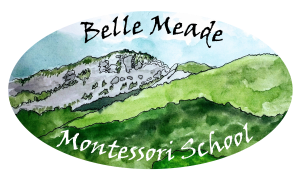Languages/Literature
Whether studying English language or a foreign language, both middle and high school students make connections between what they learn in class and what is happening in the world around them. Students develop their self-expression through writing and empathy through reading. They read many different types of books across many different genres to help them learn through observation. They will write every day, including practicing communication skills, the creative process and academic writing, to help them learn by practice. In class they will work in groups, perform academic research, explore communication, learn grammar principles and generate new work. In our cross-curriculum work, we follow the Virginia Department of Education recommendation and guidelines for languages and literature. *Topics of study include Eastern Reading, Western Reading, U.S. Reading, American Literature, World Literature, British Literature, Literary Criticism, Media Literacy, Research, Communication, Critical Thinking, Public Speaking, Advanced Grammar, Creative Writing, Spanish, Independent Language Study.
Everyday, students will write! They will be encouraged to explore grammar and mechanics to create more vibrant and powerful sentences. Students will utilize high-quality mentor texts and student-created examples to work through the editing process and expand their prowess with poetry and prose. Students will learn tips and techniques to organize their ideas into engaging papers, posters and presentations.
Students will develop their self-expression through the writing process. They will be expected to write every day, including journaling, essays and creative work, to help them develop confidence in their unique writing styles. High-quality mentor texts and student writing samples will be used as the foundation for exploring grammar and mechanics. Students will be introduced to the basic differences between creative writing, academic essays, and literary essays, including the development of the thesis statement. They will actively engage in the peer-review and editing processes to organize and polish their writing. The capstone project will be a major writing project (creative writing or expanded essay) associated with the student’s primary interests and academic objectives.
This course uses the Socratic Method to facilitate dialogue among the students, engaging them by asking and answering questions and encouraging them to do the same. The goal is to stimulate critical thinking and to draw out ideas and underlying presuppositions. Reading assignments will cover the four primary literary genres and introduce students to writers from around the globe, both classic and contemporary. Students will use the ideas and concepts discussed in the seminar to write academic essays and creative work.
Introduction to Spanish focuses on teaching conversational Spanish and includes grammar, vocabulary, written, and conversational Spanish. This class also introduces the student to Spanish and Latin-American culture.
Students will read classic and contemporary works, by authors from around the globe, in a mix of mediums, including poetry, prose, essays and long-form works. Critical thinking skills will be further developed utilizing classroom discussions to challenge students to think outside the box and appropriately challenge the observations, opinions, and interpretations of others. Students will expand their vocabulary through reading and gain experience expressing their ideas in concise literary essays.
Students will read classic and contemporary works, by authors from the British Isles, in a mix of mediums, including poetry, prose, essays and long-form works. Critical thinking skills will be further developed utilizing classroom discussions to challenge students to think outside the box and appropriately challenge the observations, opinions, and interpretations of others. Students will expand their vocabulary through reading and gain experience expressing their ideas and developing their grammar through concise literary essays.
Students will read classic and contemporary works, by American authors, in a mix of mediums, including poetry, prose, essays and long-form works. Critical thinking skills will be developed utilizing classroom discussions to challenge students to think outside the box and appropriately challenge the observations, opinions, and interpretations of others. Students will expand their vocabulary through reading and gain experience expressing their ideas and developing their grammar and style in concise literary essays.
In Spanish I students begin to develop communicative competence in speaking, writing, comprehending and reading Spanish and expand their understanding of the culture of Spanish speaking countries. The main goal in the class is to provide a context for everything students study. The class gives attention to grammar and vocabulary in a context of real-life situations, Latino cultures, and the language as a whole. The idea is to acquire a feel for the language, an appreciation of its beauty, and a degree of comfort and confidence in speaking it. Along the way, students learn a lot about the English language as well as Spanish.
Spanish III continues development of listening, reading, writing, speaking, interpersonal communication and cultural awareness. Complexity and comprehension increase as students learn more vocabulary and grammar. Discussion in Spanish of Latino literature, culture, history and contemporary events is emphasized.
In Spanish II, the study of reading, writing, speaking, and listening continues as more complex grammatical structures are introduced. With more communicative competence come deeper discussions in Spanish about Latino culture and students’ own experiences. Immersion in the language continues as students learn circumlocution in order to hold conversations entirely in Spanish.
